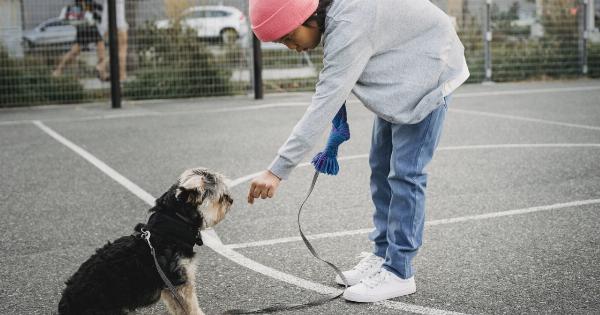Adolescence is the transitional period between childhood and adulthood, it is a time when young people experience physical, emotional, and psychological changes that can impact their character development.
The teenage years can be a challenging time for adolescents as they search for identity and independence while facing increased peer pressure and societal expectations. In this article, we will explore some of the factors that influence character development during adolescence and ways to help young people navigate this critical period in their lives.
Identity Formation
One of the most significant challenges adolescents face is developing a sense of identity. They are learning to explore new ideas, values, and beliefs that may differ from their families and influence their worldview.
During this time, they may feel conflicted about their identity, causing confusion, anxiety, and self-doubt. It is crucial for parents and educators to create a supportive environment where young people can express themselves without fear of judgment or rejection.
They need to know that it is okay to be different and that their uniqueness is something to be celebrated.
Peer Relationships
Peer relationships play a critical role in adolescent development. Young people are highly influenced by their peers and often seek acceptance, validation, and a sense of belonging from them.
Peer pressure can often lead to negative behaviors, such as drug use, alcohol abuse, and risky sexual behavior. It is important to help young people understand the impact of their choices and the potential consequences of their actions.
Encouraging positive peer relationships can help young people maintain self-esteem and confidence, feel a sense of connectedness, and help them develop crucial social skills.
Moral Development
Adolescence is a time when young people develop their moral compass, their sense of right and wrong, and their values.
Children at this age begin to understand the complexities of ethical behavior and start to develop a more sophisticated understanding of justice, fairness, and empathy. Parents and educators should provide opportunities for young people to learn about different social, cultural, and political issues, helping them understand the importance of empathy and respect for others.
Establishing a foundation for ethical behavior and moral character is essential for the future wellbeing of young people.
Resilience
Adolescence can be a tumultuous and difficult time, and developing resilience is essential for young people to navigate these challenges successfully.
Resilient young people have the capacity to handle stress, cope with adversity, and overcome obstacles. They tend to have higher levels of self-esteem, self-confidence, and optimism.
Parents and educators should encourage young people to develop healthy coping strategies such as exercise, mindfulness, and other self-care activities that promote resilience. Helping young people understand that resilience is a learned skill and that they can develop their coping mechanisms is critical to their wellbeing.
Empathy
Empathy is an essential aspect of character development during adolescence. Young people who are empathetic are more likely to develop positive relationships, show compassion, and respond proactively to social issues.
Empathy is a skill that can be developed and is essential for building strong connections with others. Parents and educators need to encourage young people to practice empathy by listening actively, demonstrating emotional intelligence, and volunteering to help others, teaching them the importance of treating others as they would like to be treated.
Self-Awareness
Self-awareness is the capacity for introspection, and it is a crucial aspect of character development during adolescence.
Adolescents need to have a clear understanding of their strengths, weaknesses, and personal qualities to develop a positive sense of self. Self-awareness can help young people avoid negative behaviors such as drug use, alcohol abuse, or violence and promote healthy self-esteem and self-confidence.
Parents and educators should help young people to develop their self-awareness by providing regular feedback, encouraging self-reflection, and helping them identify their unique strengths and abilities.
Critical Thinking
Critical thinking is the ability to analyze information, evaluate different perspectives, and develop reasoned conclusions. Adolescents who can think critically are more likely to be successful in academic and professional settings.
Furthermore, critical thinking skills can help young people make informed decisions, avoid negative behaviors, and contribute positively to their communities. Parents and educators should create learning opportunities that promote critical thinking, such as providing opportunities to participate in debates, ask open-ended questions, and analyze different perspectives.
Leadership
Leadership is a critical aspect of character development during adolescence. Adolescents who learn leadership skills are more likely to be successful, both academically and professionally.
Furthermore, young people who develop their leadership skills can make positive contributions to their communities and inspire others to take action. Parents and educators should provide opportunities for young people to participate in leadership activities such as community service, social clubs, or sports teams.
Encouraging young people to take responsibility, be accountable for their actions, and lead by example can help them develop leadership skills and become positive role models.
Conclusion
Adolescence is a critical period for character development, and parents and educators play a vital role in helping young people navigate this challenging period.
By promoting positive values such as empathy, critical thinking, self-awareness, and leadership, young people can develop the skills they need to succeed in their personal and professional lives. Creating a supportive and nurturing environment where young people can explore their identity, build positive relationships, and develop resilience is essential for building healthy, well-rounded young adults.






























